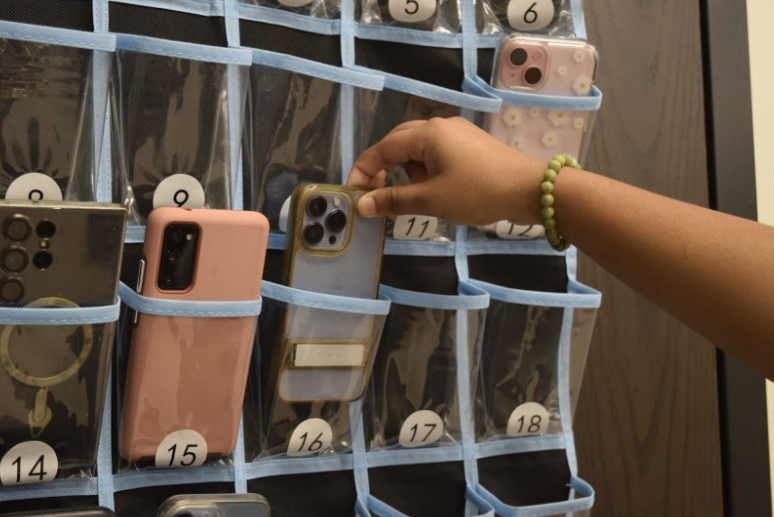Cyber-attacks are on the rise, invading every nook and cranny of the world and its activities: from countries, companies to schools; from grandmas to toddlers; from the Clinton-Trump presidential race to hacking grades. The 2018 Global Risks Report by the World Economic Forum ranks cyber-attacks as the third highest risk to society right next to extreme weather and natural calamities in the next five years. Over one billion people worldwide are affected by cybercrime. According to the FBI, victims lost more than $1.4 billion to internet crimes in 2017.
If such a large sum of money is lost each year, how much precaution are we truly taking? Are we making ourselves easy prey? What if the real damage is done by the victims themselves? Human error is still the largest cause for cyber attacks, accounting for almost 90% of them. Yet, we don’t seem to pay our due diligence. It is time we do. No matter how smart you are, you cannot prepare for a test after it is taken. Here is a study guide with bonus tips for extra security, to prepare for the dreaded cyber test that no one can escape taking every single day.
Study guide to cyber securing yourself online
Passwords
VT&qQ56k5e5L9*kIQzlX&trMU6o9lG is not the 2019 winning word at the Scripps Spelling Bee, but rather a 30-character password generated by a password manager. A password manager not only creates a unique password but also remembers it for you. Maintaining strong, unique passwords is a simple yet powerful way to protect yourself and your information. Two-factor authentication should always be enabled if provided the option. Do not share your password EVER! Opening all your accounts on your school laptop using a password manager with two-factor authentication but not logging out is the equivalent of completing an assignment but forgetting to hit “turn in” on Google Classroom. Remember to log out, otherwise there is no point to even having a password in the first place.
Security Tip: Use a password manager such as Dashlane or LastPass
Phishing emails
“You have won a $100 iTunes gift card. Click here to claim your gift!” can be a phishing email or a smishing text. Phishing is the fraudulent practice of sending emails claiming to be from reputable companies in order to entice individuals to reveal personal information, such as passwords and credit card numbers. Smishing is phishing that involves a text message.
According to PhishMe Enterprise’s 2016 report, more than 90% of cyber attacks start with phishing. Phishing emails are becoming increasingly sophisticated and difficult to detect. When in doubt do not open emails, click on links, attachments or files. Do not reveal personal information or passwords in emails.
Security Tip: Encrypt important files, using windows ‘encrypt with password’ option or a third-party solution, such as TrueCrypt, VeraCrypt or 7-Zip.
Devices and home systems
Install antivirus software and firewall protections. Update your systems and devices as recommended. Take regular backups to an external USB device or online cloud backup. When in doubt, run an antivirus scan. Delete the apps that you no longer need. Control your privacy and security settings. Disable geotagging on your camera apps to avoid your photos giving away your exact location.
Security Tip: Use touch ID or face recognition.
Financial cybersecurity
When banking and shopping online, look for web addresses with “https://” or “shttp://,” which provide enhanced security over “http://” sites. Do not save credit card information or any financial information through an online account. Always log out after a transaction. Never use public WiFi while making transactions. Use personal or trusted WiFi. If you are away from a trusted WiFi connection, consider using a hotspot or a VPN (Virtual Private Network). A VPN extends a private network across a public network creating a secure encrypted connection between the computer and the server.
Security Tip: Use a VPN connection. Hotspot Shield and TunnelBear are two free VPN services.
Social media and video games
Manage and control your privacy settings. Do not talk to strangers. Refrain from revealing personal information or your location. Consider using fake names on public gaming sites. Avoid oversharing on social media. Watch out for “Google Bombing,” where sites ranking highly on Google searches can be fake or malicious, and avoid clicking on the links to unknown news sources while searching for a popular topic.
Security Tip: Periodically search yourself on the web to see what information exists and request to opt out of people search sites if needed.
Digital footprint
Digital tracks can be eternal. Be mindful of what you do online. Security giant McAfee believes many future adults will suffer from negative “digital baggage” accumulated by people’s large online presence. Experts say that in the future our digital footprint might carry more weight than anything we might have on a resume. It seems like too many people are interested to know about us: friends, partners, colleges, employers, the government, the NSA and the list goes on. Set alerts or search yourself periodically on the web to see what information exists. A host of browser extensions and app add-ons can limit the surreptitious capture of personal information. Disconnect, DoNotTrackMe and Ghostery are a few examples.
Security Tip: Use digital tools to manage your footprint.
Cyber delinquencies
Did you know that accidentally sending a spam email to your contacts can land you a hefty fine? Unauthorized access to any data or program on a computer or online is an offense. Do not guess other’s passwords or use other’s accounts, always ask them for permission to access their accounts. Spamming, phishing and spoofing are considered cybercrime along with cyberbullying, cyberstalking and hacking. Copying digital content a friend has bought, like music, pictures, videos, movies, games, books or software without the permission of the copyright holder is digital piracy. Digital piracy is theft. Always report any illegal behavior or suspicious activity.
Security Tip: Beware of cyber-related offenses, felonies and crimes.
Cybersecurity is our shared responsibility. As technology rapidly evolves, so do cyber tactics and threats. The need for global cyber awareness and cyber diligence is critical. Take the extra steps to protect yourself and others against the “man in the black hoodie” by keeping safe on the cyberspace. Join the Cybersecurity club today to learn more, to participate in cybersecurity competitions and to foster a cyber-secure environment at West High.


![Senior Dhiya Prasanna examines a bottle of Tylenol. Prasanna has observed data in science labs and in real life. “[I] advise the public not to just look or search for information that supports your argument, but search for information that doesn't support it,” Prasanna said.](https://pwestpathfinder.com/wp-content/uploads/2025/10/DSC_0073-2-1200x800.jpg)
![Junior Fiona Dye lifts weights in Strength and Conditioning. Now that the Trump administration has instituted policies such as AI deregulation, tariffs and university funding freezes, women may have to work twice as hard to get half as far. "[Trump] wants America to be more divided; he wants to inspire hatred in people,” feminist club member and junior Clara Lazarini said.](https://pwestpathfinder.com/wp-content/uploads/2025/05/Flag.png)
![As the Trump administration cracks down on immigration, it scapegoats many immigrants for the United States’ plights, precipitating a possible genocide. Sophomore Annabella Whiteley moved from the United Kingdom when she was eight. “It’s pretty scary because I’m on a visa. When my visa expires next year, I’m not sure what’s going to happen, especially with [immigration] policies up in the air, so it is a concern for my family,” Whiteley said.](https://pwestpathfinder.com/wp-content/uploads/2025/05/DSC_0077-7copy.jpg)
![Shifting global trade, President Donald Trump’s tariffs are raising concerns about economic stability for the U.S. and other countries alike. “[The tariffs are] going to pose a distinct challenge to the U.S. economy and a challenge to the global economy on the whole because it's going to greatly upset who trades with who and where resources and products are going to come from,” social studies teacher Melvin Trotier said.](https://pwestpathfinder.com/wp-content/uploads/2025/05/MDB_3456-1200x800.jpg)



![Some of the most deadly instances of gun violence have occurred in schools, communities and other ‘safe spaces’ for students. These uncontrolled settings give way to the need for gun regulation, including background and mental health checks. “Gun control comes about with more laws, but there are a lot of guns out there that people could obtain illegally. What is a solution that would get the illegal guns off the street? We have yet to find [one],” social studies teacher Nancy Sachtlaben said.](https://pwestpathfinder.com/wp-content/uploads/2025/01/DSC_5122-1200x800.jpg)


Sid Das • Sep 30, 2019 at 7:59 pm
This is a great article! Learned quite a bit, if only there was a club where I could learn about how to be Cyber Secure.